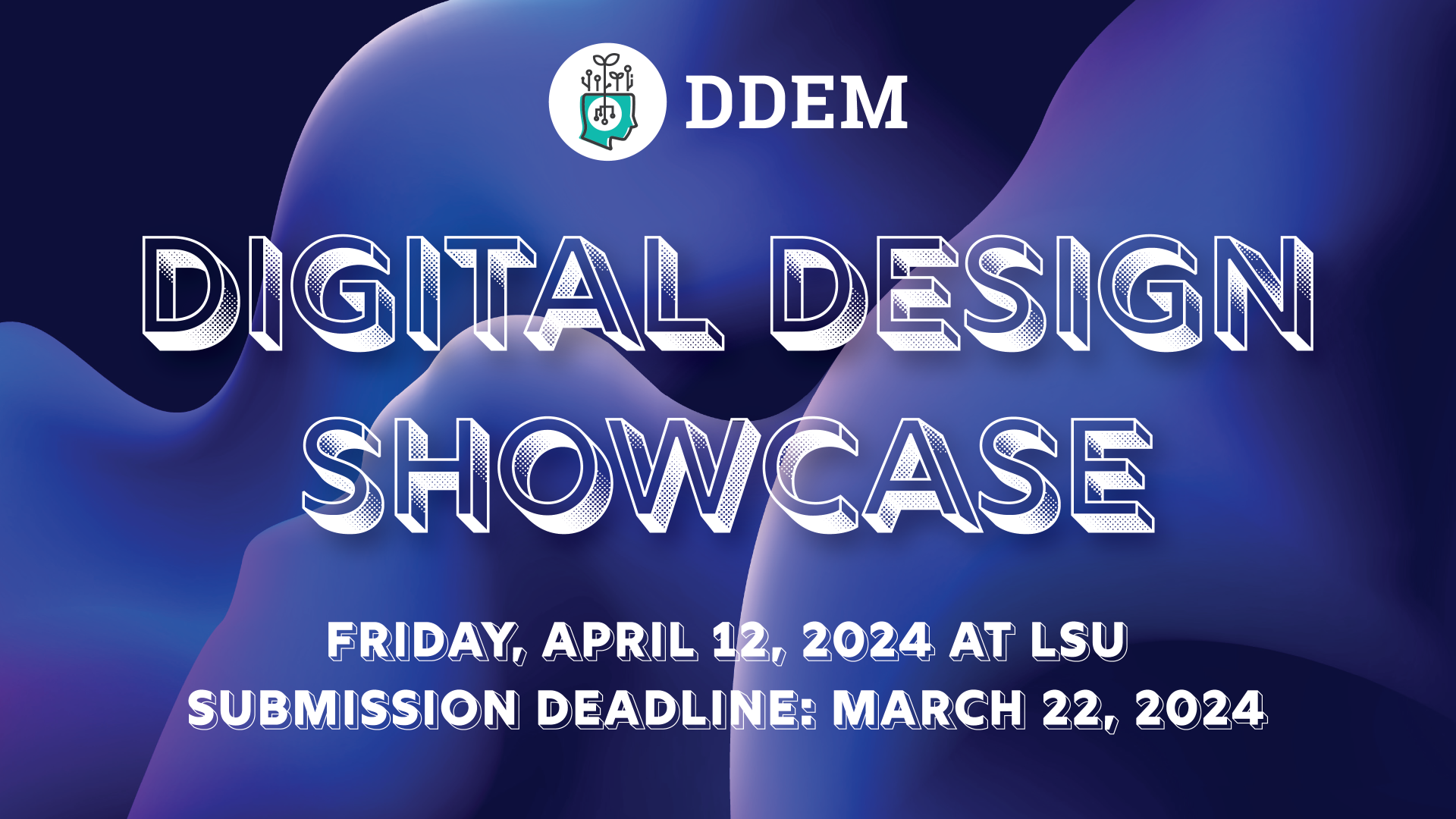
2025 Digital Design Showcase
Friday, April 11, 2025 8:30 a.m. – 1:30 p.m.
We are excited to announce the 2025 Digital Design Showcase taking place Friday, April 11, 8:30 a.m. – 1:30 p.m. at the LSU Digital Media Center. This annual event celebrates the creativity, innovation, and hard work of students participating in LSU STEM Pathways programs.
The Digital Media Center offers a dynamic and professional exhibition environment, fully equipped to highlight a wide range of digital design work. Categories include, but are not limited to:
- Graphic design
- Motion graphics
- Film and video
- Sound design and music
- Video games
- Web design, coding, and programming
- Digital art and sound installations
Showcase Highlights:
🎭 Live student presentations
🚀 XR studio, immersive audio, & DMC Theatre demos
🤝 Networking with LSU faculty & industry professionals
Deadline to confirm attendance is March 28, 2025.
Deadline to submit student work is April 4, 2025.
Please reach out to lsuddem@gmail.com for guidance on how to submit digital files or portfolios for this year’s showcase. Submission instructions will be provided directly to participating schools and teachers.